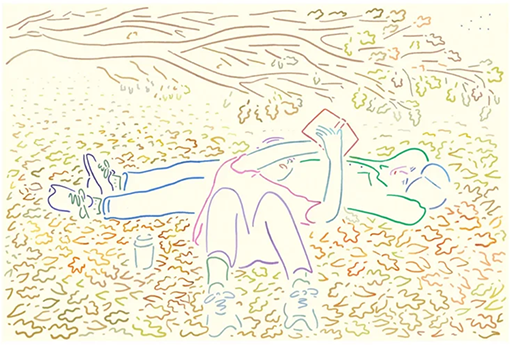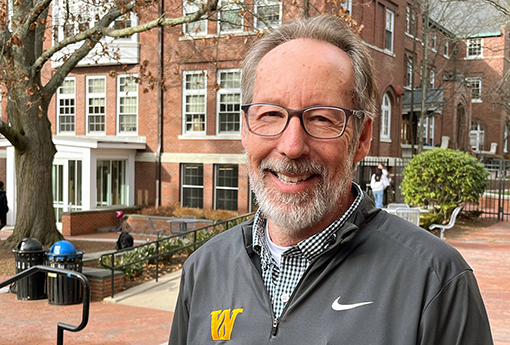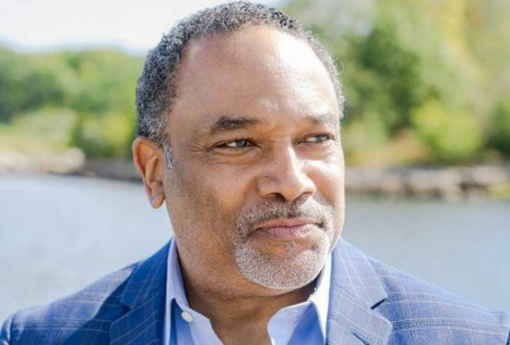
An Introduction to Diversity, Equity, Inclusion, and Belonging at Wheeler from Director of Unity & Diversity Princess Sirleaf Bomba
January 25, 2024
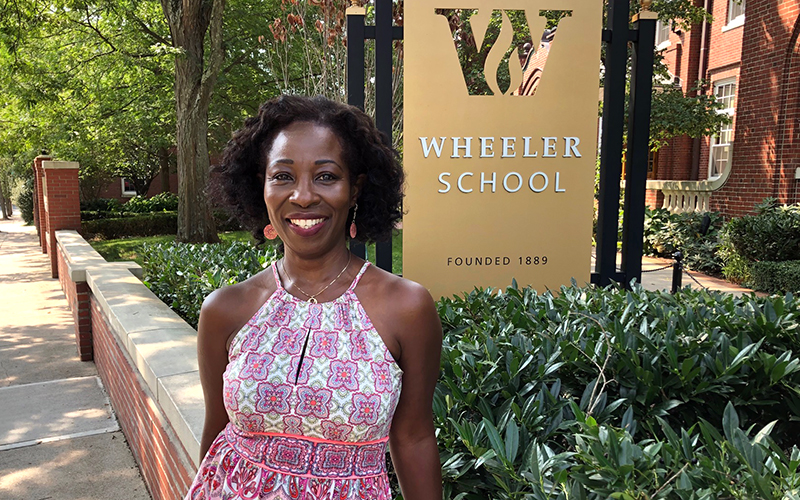
You may contact Princess Sirleaf Bomba via email at princessbomba@wheelerschool.org or reach her at (401) 421-8100 ex. 2254.
Wheeler has a longstanding commitment to diversity, equity, and inclusion (DEI) in our community. The school’s programming in these areas began three decades ago, and we talked with Director of Unity & Diversity Princess Sirleaf Bomba about how that work continues to evolve today.
Q. What are the goals of the Office of Unity & Diversity, and how is that work incorporated into the overall Wheeler student experience?
A: The overall goal of the Office of Unity & Diversity is to help create and support a community of belonging where all student voices are amplified and students feel seen, valued, and celebrated. Our approach is to increase representation for all students to see themselves reflected in the community, including in the adult population, curriculum, programs, and school culture. Celebrating diversity and belonging remain at the core of what we do. It’s also a key part of our larger WHeeLs curriculum, or Whole Life Seminar, which covers a range of social-emotional wellness areas–from health, to diversity, to community engagement, and technology–that helps prepare our students for happy, fruitful, and engaged lives.
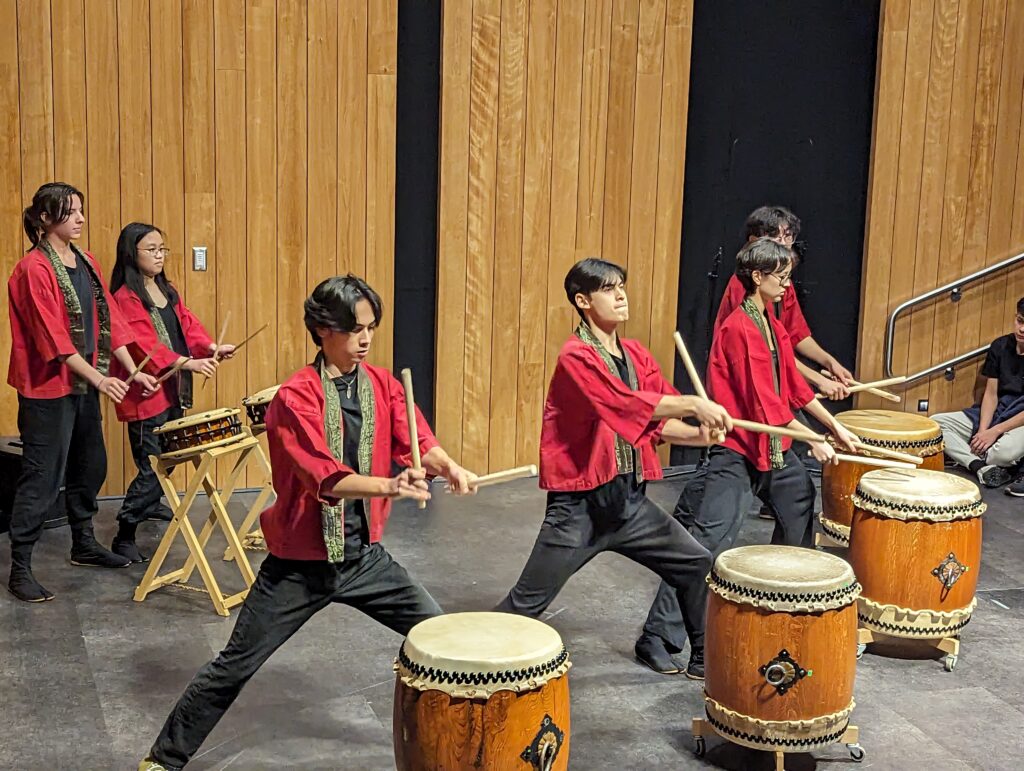
Q. What is your role as Director of Unity & Diversity?
A: My role as Director is to lead Wheeler’s commitment to develop, coordinate, and implement diversity programs and initiatives across divisional levels and constituent groups in alignment with the philosophy and functions of the Unity & Diversity Office and the school’s mission. I work closely with the Head of School and many other administrators to help plan and sustain these initiatives, which include but are not limited to promoting awareness and understanding of diversity, supporting faculty and staff who are members of underrepresented groups, providing support and resources to families of underrepresented groups, assisting in enrollment and retention of underrepresented students to build a diverse and inclusive community, and assisting in the recruitment, hiring, and mentoring of faculty and staff of underrepresented identities. Essentially, my role is to support the Wheeler community in developing and maintaining inclusive, anti-racist, and equitable practices.
Q. What resources does your office provide for students?
A: The Office of Unity & Diversity provides both academic and programmatic resources for students to create a feeling of belonging for everyone. Our Unity & Diversity curriculum is developed with individual grade and age-appropriate information to help students recognize, discuss, and have respect for all socially significant identities. We also organize events such as the Multicultural Performance Showcase, welcome events for LGBTQ families, families with adopted children, and families with children of color, and manage institutional support programs that are part of Wheeler’s larger academic support and College Counseling programs, such as our Student Support Program that provides support both in the college search process and for the post-graduate success of historically underrepresented groups.
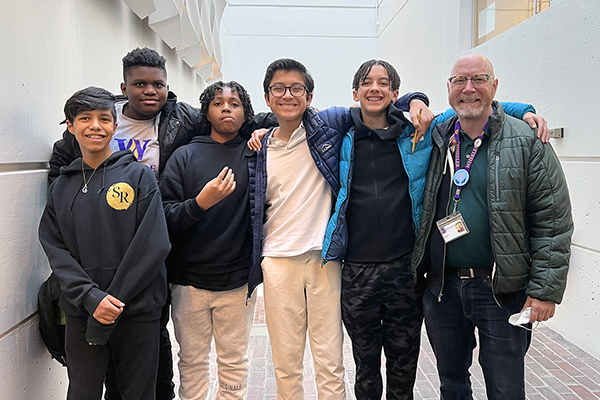
Q. You’ve been Wheeler’s Director of Unity & Diversity since 2013, but the school’s DEI work goes back several decades. Can you talk about the history of the school’s diversity programming and how it has evolved over the years?
A: I’ve already mentioned that DEI is part of our Whole Life Seminar, but, as I look back at my own family’s history at Wheeler, one of the things that drew us here in 2002 was the school’s visible commitment to diversity, equity, and inclusion. I knew how important it was having a community that was dedicated to these issues, that talked about them, and still recognized that there was a lot of work to be done. At the start of our family’s first year at Wheeler, we were invited to a barbecue welcoming families of color, and it was incredible. I soon became an engaged parent volunteer, especially around the school’s diversity, equity, and inclusion programming, and it was great to see how many different people, including students, faculty, staff, and fellow parents, were engaged as well. The Upper School’s Students Involved in Cultural Awareness (SICA) club is a great example.
Even so, it’s important to recognize that Wheeler is a predominantly white institution–only 25% of our current faculty and staff identify as people of color, and that number is 34% of our students. Being underrepresented in any environment and community means that you don’t always feel that you belong, and that can come with pressure, anxiety, and challenges beyond what we all may experience as a student, faculty, or staff member at school. That is why our DEI programming at Wheeler is both academic and social. For example, since the early 2000’s, we have offered time and space where underrepresented students can support one another and talk about their experiences at Wheeler and in the wider world. We have a variety of these groups for interested students who share socially significant identities, such as students of color, or students who identify as Jewish, queer, adopted, or having learning differences.
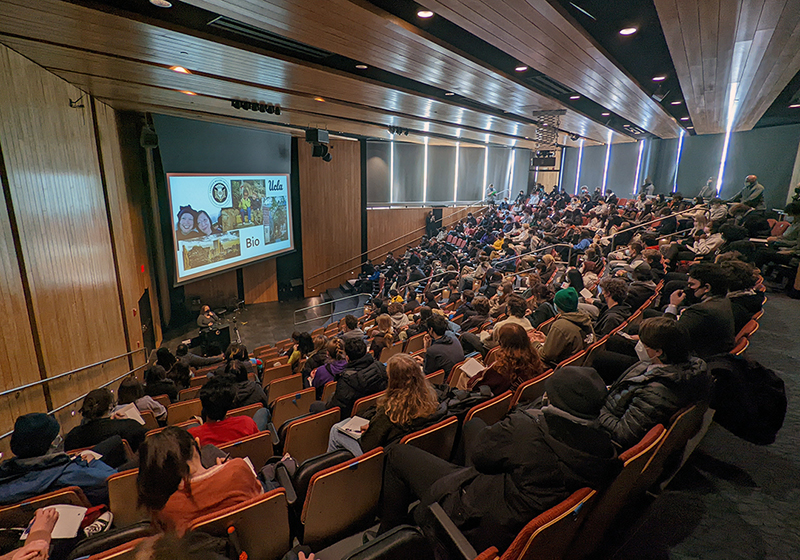
Q. As you just mentioned, fostering a sense of inclusivity involves the Wheeler community at all levels–how does the Office of Unity & Diversity impact the professional and personal development of faculty and staff?
A: In addition to mentoring faculty and staff from underrepresented groups and providing supportive structures for them, all faculty and staff engage in ongoing professional development opportunities on campus and at both regional and national conferences. The bedrock of these opportunities are in the areas of multicultural teaching and learning, anti-bias teaching, teaching with an equity lens, and cultivating and maintaining a multicultural community.
Q. Is there anything else you’d like to add about your Wheeler experience, the school’s history of DEI work, or how you see that work and the Office of Unity & Diversity evolving in the coming years?
A: As I discussed earlier, Wheeler is not only the place I’ve chosen professionally, Wheeler is the place I chose to raise my children. The process for selecting the right school enviroment is often challenging for an interracial family with bi-racial children. The factors to consider extend beyond some of the more typical considerations for school choice. We needed a school with an authentic community; one where assimilation was not the norm and celebrating difference is the ultimate goal. While the work is not done, and the approach to become an inclusive community where true belonging is the norm is complicated and urgent, Wheeler was then and continues to be a school committed to that goal.
